Artificial Intelligence (AI) is increasingly becoming a cornerstone in the world of e-commerce, and Shopify stores are at the forefront of this revolution. As we approach 2025, AI is reshaping the way Shopify merchants engage with customers, manage inventory, and optimize their marketing efforts. From personalized shopping experiences to advanced fraud protection, AI is helping Shopify store owners scale their businesses like never before. In this article, we’ll explore how AI is revolutionizing Shopify stores and how it can boost your e-commerce success.
1. Personalized Shopping Experiences: Delivering Tailored Journeys

In e-commerce, personalization has become key to driving sales and customer satisfaction. AI enables Shopify store owners to offer personalized shopping experiences by analyzing customer behavior and providing tailored product recommendations. AI tools use data such as browsing history, past purchases, and preferences to suggest products that customers are more likely to buy, increasing the likelihood of conversions.
Shopify’s AI-driven features like Shopify Inbox and Shopify Audiences empower merchants to engage directly with their customers, sending customized offers and personalized promotions that resonate with individual shoppers. This level of personalization is proven to improve customer loyalty and significantly increase repeat sales.
Enhancing Customer Loyalty with AI Personalized experiences are not only beneficial for increasing conversions but also for improving customer retention. When customers receive recommendations based on their interests and buying behavior, they are more likely to return to the store for future purchases. This helps Shopify store owners build lasting relationships with their customers.
How Ouriken.com Can Help with Shopify Personalization Ouriken.com: Shopify development services that help you integrate AI-powered personalization tools into your store. By leveraging customer data, Ouriken.com can help you craft tailored shopping experiences that boost engagement and improve customer retention.
2. AI-Powered Chatbots: Enhancing Customer Support

AI-powered chatbots are becoming a game-changer for Shopify merchants looking to improve customer support. These chatbots use Natural Language Processing (NLP) to engage with customers, answer their queries, and even guide them through the sales process, all while reducing the need for human intervention. With chatbots, Shopify store owners can offer 24/7 support and help customers navigate their shopping experience smoothly.
AI-driven chatbots, such as Tidio and Gorgias, can resolve customer issues instantly, from answering common questions to providing detailed product recommendations. This not only enhances customer satisfaction but also reduces operational costs by automating routine tasks.
Cost-Effective Customer Service: By integrating AI chatbots, Shopify stores can manage a higher volume of customer interactions without the need for additional staff. This enables store owners to offer high-quality customer support around the clock, helping improve customer experience and ultimately driving sales.
3. Predictive Analytics: Smarter Inventory Management

AI’s ability to predict future trends is transforming how Shopify merchants manage inventory. With predictive analytics, store owners can forecast product demand based on data, such as past sales trends, customer behavior, and market conditions. AI-powered tools can help store owners identify which products will be in demand and when preventing stockouts or overstocking.
By leveraging predictive analytics, Shopify merchants can fine-tune their inventory, ensuring they have the right products in stock at the right time. This not only improves operational efficiency but also maximizes profitability by avoiding unnecessary inventory costs and lost sales due to product shortages.
Streamlining Inventory Management: AI-driven platforms like Skubana and TradeGecko offer predictive analytics that helps store owners make data-backed decisions on what to stock and when minimizing the risk of overstocking or understocking. This ensures a more efficient supply chain and improved sales forecasting.
4. Dynamic Pricing: AI-Optimized Revenue

Pricing plays a critical role in e-commerce, and AI is helping Shopify merchants optimize their pricing strategies to maximize revenue. Dynamic pricing powered by AI allows Shopify store owners to adjust their prices in real-time based on factors like demand fluctuations, competitor prices, and inventory levels. This ensures that the products are priced competitively while maximizing margins.
AI-powered pricing tools like Prisync and Shopify’s dynamic pricing features automatically adjust product prices based on real-time data. This helps merchants stay competitive while increasing revenue by optimizing the price point for each product.
Maximizing Profit Margins with AI Pricing: By implementing AI-powered dynamic pricing, Shopify store owners can fine-tune their pricing strategies for better profit margins. Whether it’s raising prices during peak demand or offering discounts during off-peak periods, AI ensures the best possible pricing strategy to increase revenue.
5. Targeted Marketing: Reaching the Right Audience

AI is also transforming marketing efforts by enabling Shopify merchants to create more effective, data-driven marketing campaigns. AI tools analyze customer behaviors, demographics, and interests to help merchants target the right audience with personalized advertisements. This approach boosts engagement and conversion rates, leading to more effective marketing campaigns.
AI is integrated into platforms such as Facebook Ads and Google Ads, where it automatically manages bidding strategies, ad placements, and audience targeting. Shopify store owners can now run optimized pay-per-click (PPC) campaigns that attract the most relevant customers at the most effective times.
Improving ROI on Advertising Spend: By leveraging AI-powered advertising tools, Shopify merchants can significantly improve their return on investment (ROI) by ensuring that their ads reach the right customers. AI helps reduce advertising waste by targeting only those most likely to convert, maximizing ad spend efficiency.
6. Fraud Prevention: Securing Shopify Stores

Fraud prevention is critical in e-commerce, and AI is making it easier to detect and prevent fraudulent activities. AI tools analyze transaction data, such as purchase patterns and shipping information, to identify suspicious behavior and flag potential fraud. AI-powered platforms like Signifyd and NoFraud help Shopify merchants reduce chargebacks and financial losses.
How Ouriken.com Can Help with Fraud Prevention Solutions Ouriken.com: can help you integrate AI-driven fraud protection tools into your Shopify store. By leveraging Ouriken.com expertise in Shopify development, you can enhance the security of your store and protect customer data from fraud.
7. Content Automation: Boosting SEO with AI
Content creation is crucial for SEO and marketing success in e-commerce, and AI is streamlining the process. Shopify merchants can use AI-powered content creation tools to generate optimized product descriptions, blog posts, and social media content, saving time and improving content quality. AI tools can also analyze search trends and optimize content for specific keywords, improving organic search rankings.
AI-driven content platforms like Jasper and Copy.ai help merchants generate SEO-friendly content that resonates with target audiences, increasing visibility and driving more traffic to their stores.
Automating Content Creation: With AI, Shopify merchants can automate the generation of content that supports marketing campaigns, helping improve website rankings on search engines and attract more organic traffic.
8. AI-Powered Analytics: Actionable Insights for Smarter Business Decisions
AI is also enabling Shopify merchants to make smarter business decisions by providing in-depth analytics. With AI-powered analytics tools, Shopify store owners can track key performance metrics, such as sales data, customer behavior, and marketing campaign performance. These insights enable merchants to identify areas of improvement, refine product offerings, and optimize their business strategies.
AI analytics platforms help Shopify store owners track what’s working and what’s not, offering actionable insights that can lead to better decision-making and improved store performance.
Optimizing Business Strategies with AI Insights: By using AI-powered business intelligence tools, Shopify merchants can make data-driven decisions that enhance profitability, streamline operations, and drive customer engagement.
How Ouriken.com Can Help with AI Analytics Implementation: With Ouriken.com Shopify development expertise, you can integrate AI-powered analytics tools that provide valuable insights into customer behavior, sales trends, and marketing performance. Ouriken.com helps you use these insights to make data-driven decisions that grow your business.
Conclusion: Embrace AI for Shopify Store Success in 2025

AI is revolutionizing the way Shopify stores operate, from personalized customer experiences and dynamic pricing strategies to fraud prevention and marketing optimization. By integrating AI into their business operations, Shopify store owners can enhance their efficiency, improve customer satisfaction, and drive revenue growth.
As we move into 2025, AI will continue to play a pivotal role in helping Shopify merchants stay ahead of the competition and achieve long-term success. By embracing AI technologies, Shopify store owners can future-proof their businesses, optimize performance, and deliver exceptional experiences to their customers.


